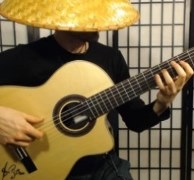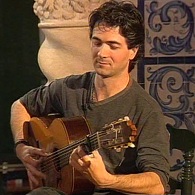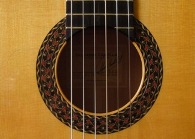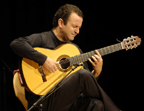Welcome to one of the most active flamenco sites on the Internet. Guests can read most posts but if you want to participate click here to register.
This site is dedicated to the memory of Paco de Lucía, Ron Mitchell, Guy Williams, Linda Elvira, Philip John Lee, Craig Eros, Ben Woods, David Serva and Tom Blackshear who went ahead of us.
We receive 12,200 visitors a month from 200 countries and 1.7 million page impressions a year. To advertise on this site please contact us.
|

|
|
Is Rumba Actually a Flamenco Palo?
|
You are logged in as Guest
|
|
Users viewing this topic: none
|
|
Login  | |
|

   
BarkellWH
Posts: 3461
Joined: Jul. 12 2009
From: Washington, DC

|
 Is Rumba Actually a Flamenco Palo? Is Rumba Actually a Flamenco Palo?
|
|
|
Whether or not Rumba is considered a flamenco palo is open for debate; some consider it to be so, and some do not. I have been following flamenco for more than 40 years (as opposed to studying flamenco guitar for about the last five years), and the old vinyl albums of Sabicas and others never had a palo called "Rumba." The standbys were always Soleares, Buleria, Siguiriya, etc., but never Rumba. In fact, as far as I can tell, it is only within the last few years that Rumba has been considered a palo by some.
Question: When did Rumba begin being considered a palo and why? It seems almost a genre in its own right, and I am wondering if those guitarists who played Rumba were not instrumental in pushing it as a palo so they could be considered "flamencos." Any thoughts on this?
Cheers,
Bill
_____________________________
And the end of the fight is a tombstone white,
With the name of the late deceased,
And the epitaph drear, "A fool lies here,
Who tried to hustle the East."
--Rudyard Kipling
|
|
|
|
REPORT THIS POST AS INAPPROPRIATE |
Date Jun. 30 2010 17:06:44
 |
|
 New Messages New Messages |
 No New Messages No New Messages |
 Hot Topic w/ New Messages Hot Topic w/ New Messages |
 Hot Topic w/o New Messages Hot Topic w/o New Messages |
 Locked w/ New Messages Locked w/ New Messages |
 Locked w/o New Messages Locked w/o New Messages |
|
 Post New Thread
Post New Thread
 Reply to Message
Reply to Message
 Post New Poll
Post New Poll
 Submit Vote
Submit Vote
 Delete My Own Post
Delete My Own Post
 Delete My Own Thread
Delete My Own Thread
 Rate Posts
Rate Posts
|
|
|
Forum Software powered by ASP Playground Advanced Edition 2.0.5
Copyright © 2000 - 2003 ASPPlayground.NET |
5.859375E-02 secs.
|


 Printable Version
Printable Version





 )
) 






 New Messages
New Messages No New Messages
No New Messages Hot Topic w/ New Messages
Hot Topic w/ New Messages Hot Topic w/o New Messages
Hot Topic w/o New Messages Locked w/ New Messages
Locked w/ New Messages Locked w/o New Messages
Locked w/o New Messages Post New Thread
Post New Thread